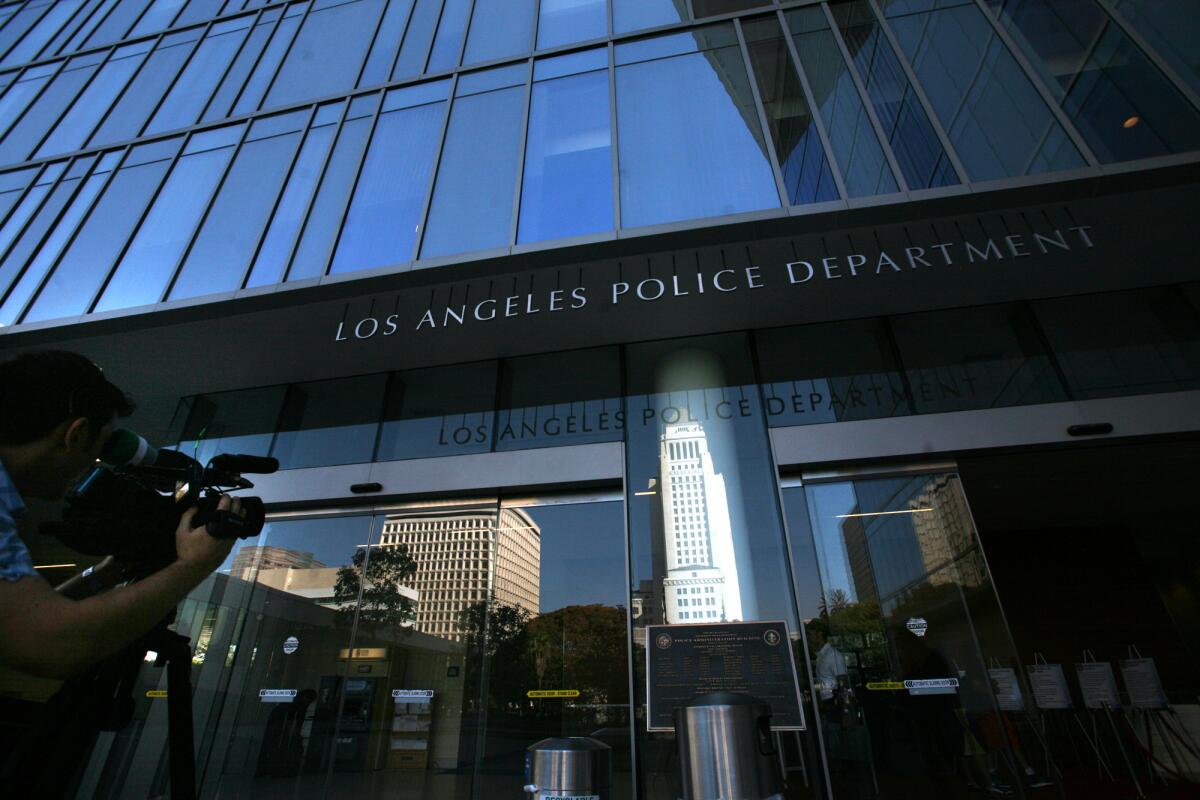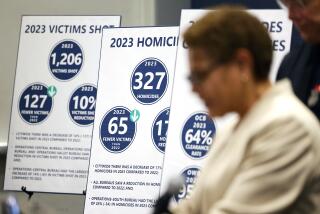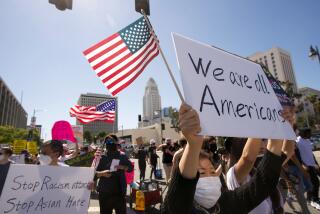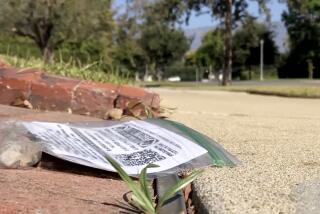Hate crimes in Los Angeles reach highest level since 2002, data show

Reports of hate crimes rose in Los Angeles for the fifth straight year in 2019, increasing 10.3% over the year before and reaching their highest level since 2002, according to data released Wednesday.
A total of 322 hate crimes were reported last year, compared with 292 in 2018, according to numbers from the Los Angeles Police Department that were disclosed at an L.A. City Council Public Safety Committee meeting. The latest statistics represent a rise of nearly 41% since 2016, when 229 hate crimes were reported in L.A. Last year was the worst for hate crimes since 2002, when 354 were reported.
For the record:
6:29 a.m. Jan. 24, 2020An earlier version of this article said the worst months for hate crimes nationally over the last 10 years were November 2018 followed by October 2018. According to FBI data, the worst month for reported hate crimes was November 2016, when the U.S. presidential election took place, followed by October 2018, which coincided with the midterm elections.
And the crimes were more violent, the data show: Hate crimes directed against people rose, while those involving vandalism and destruction of property dipped 3.4%.
Robberies with hate-crime elements jumped 266.7% last year, from three to 11; criminal threats rose 24.5%, from 49 to 61; and simple assaults rose 10.3%, from 78 to 86.
“Year after year, we have seen hate rising in our city and across our nation, and we have not done enough to keep communities safe,” Councilman David Ryu said in a statement. “We need to take these numbers seriously because behind every one of these numbers is a religious minority, a person of color, a transgender or LGBTQ person suffering in fear.”
Hate crimes based on religion went up in 2019 — 81 were reported, compared with 52 in 2018, an increase of nearly 56%. Reports of anti-Muslim crimes increased 150%, from two to five, and reports of anti-Jewish crimes increased 60.5%, from 43 to 69.
Some of the increase in anti-Semitic incidents reflects a change in how the LAPD classified crimes involving swastikas, which shifted such reports from the general antireligion category to the anti-Jewish category, according to professor Brian Levin, director of the Center for the Study of Hate and Extremism at Cal State San Bernardino.
Still, the trends were in line with other major cities. Last year, New York and Chicago each reported the highest incidence of hate crimes since 2001, and Jews were the most targeted demographic in those cities as well.
“The bottom line is, swastikas have been normalized, and when we combine that with the ubiquity of anti-Semitic epithets and memes on the internet, I think it shows we’re in a new era,” Levin said. “We’re now at the highest level [of hate crimes] in almost two decades, overall, and just because swastikas are a driver, I think the question is, why the heck are we seeing so many swastikas during this year?”
Reports of crimes based on race or ethnicity, as well as on sexual orientation, did not rise significantly in L.A. last year —153 and 65 were reported, respectively, compared with 152 and 71 in 2018. Of those, 68 were against black people, compared with 61 in 2018, and 42 were against Latinos, compared with 44 in 2018. Fifty-three were against gay men, compared with 56 in 2018.
But hate crimes based on gender identity were up 23.5%, with 21 reported against transgender people in 2019, compared with 17 in 2018.
“I can tell you, with an election season coming up, we really have to be concerned because over the last decade, the three worst months were all around politically charged events,” Levin said.
Nationwide over the last 10 years, the worst month for hate crimes, per FBI data, was November 2016, when the U.S. presidential election took place, followed by October 2018, which coincided with the midterm elections, Levin said. The third-worst month was August 2017, when violence erupted at a white supremacist rally in Charlottesville, Va., he said.
“Hate crimes tend to go up in election years, and most recently, the most diverse and bluest cities are where we’ve been seeing some of the biggest increases,” Levin said.
More to Read
Start your day right
Sign up for Essential California for news, features and recommendations from the L.A. Times and beyond in your inbox six days a week.
You may occasionally receive promotional content from the Los Angeles Times.







